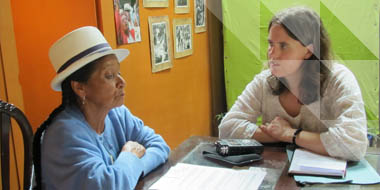-
Study
Study
Interested in studying at Northumbria? With 31,500 students, Northumbria is one of the largest universities in the country, offering courses on either a full-time, part-time or distance learning basis.
Discover more-
Undergraduate
- Undergraduate Study Degree
- Undergraduate Open Day & Events
- Application Guides
- Northumbria University UCAS Exhibitions
- Foundation Years
- Undergraduate Fees & Funding
- School & College Outreach
- Continuing Professional Development
-
Postgraduate
- Postgraduate Study Degree
- Postgraduate Research Degrees
- Postgraduate Open Days and Events
- Postgraduate Fees & Funding
- Flexible Learning
- Thinking about a Masters?
- Continuing Professional Development
- Change Direction
-
Student Life
- The Hub - Student Blog
- Accommodation
- Life in Newcastle
- Support for Students
- Careers
- Information for Parents
- Students' Union
- Northumbria Sport
-
-
International
International
Northumbria’s global footprint touches every continent across the world, through our global partnerships across 17 institutions in 10 countries, to our 277,000 strong alumni community and 150 recruitment partners – we prepare our students for the challenges of tomorrow. Discover more about how to join Northumbria’s global family or our partnerships.
Discover more-
Applying to Northumbria
- European Union
- Our London Campus
- Northumbria Pathway
- International Events
- Entry Requirements
- Agent Network
-
Northumbria Language Centre
- Faculty Requirements
- Acceptable English Requirements
- Pre-Sessional English and Study Skills
- Academic Language Skills Programmes (ALS)
-
International Fees, Funding & Scholarships
- International Undergraduate Fees
- International Undergraduate Funding
- International Masters Fees
- International Masters Funding
- International Postgraduate Research Fees
- International Postgraduate Research Funding
- International Money Matters
-
Life at Northumbria
- International student support
- The Hub - Student Blog
- Careers
-
International Mobility
- Current Northumbria Students
- Incoming Exchange Students
-
-
Business
Business
The world is changing faster than ever before. The future is there to be won by organisations who find ways to turn today's possibilities into tomorrows competitive edge. In a connected world, collaboration can be the key to success.
Discover more -
Research
Research
Northumbria is a research-rich, business-focused, professional university with a global reputation for academic quality. We conduct ground-breaking research that is responsive to the science & technology, health & well being, economic and social and arts & cultural needs for the communities
Discover more -
About Us
-
About Northumbria
- Our Strategy
- Our Staff
- Our Partners
- Student Profiles
- Alumni Profiles
- Leadership & Governance
- Academic Departments
- University Services
- History of Northumbria
- Contact us
- Online Shop
-
-
Alumni
Alumni
Northumbria University is renowned for the calibre of its business-ready graduates. Our alumni network has over 236,000 graduates based in 178 countries worldwide in a range of sectors, our alumni are making a real impact on the world.
Discover more - Work For Us
What will I learn on this module?
This module aims to provide you with a critical understanding of key debates shaping Global Development Futures. The module examines cutting edge developments in the sector, in the context of demands for innovative responses to issues such as climate change and adaptation, equitable resource management, and decolonising development, including nascent technical fixes and conceptual frameworks disrupting the contemporary development landscape. The module uses the lenses of ‘infrastructures’, ‘economies’ and ‘communities’ to develop an in-depth understanding of innovations across a range of scales, which are re-shaping local and global economies, and the way development is practiced. Practical exercises will help you apply your critical understanding to real-world case studies.
How will I learn on this module?
In this module you will be encouraged to reflect critically upon key drivers of innovation and the ways they are changing development ideas and practice. You will be exposed to often contrasting development debates and practices through research-enriched teaching and learning. The module will be delivered through a workshop-style of teaching, including a mix of multi-media analysis, seminar-style activities and discussion, practical exercises, and student-led presentations. The sessions will draw significantly from active research projects in which the module teaching team is involved. This module will be assessed formatively through presentations and in-class discussion around analyses of critical case studies; and summatively through an individual essay and a group podcast project. You will also be expected to engage in private and self-directed study. The MSc programme, module guide, internet site and tutor prescription will provide a clear framework for this study.
How will I be supported academically on this module?
On the module you will be academically supported in several ways. First, the teaching team will be available in person during workshops to guide you through the module and answer any questions. Second, you will be able to email the teaching team and meet them during set office hours to ask questions. Third, the module has an online electronic learning portal website that guides you through many frequently asked questions. Step-by-step recorded video tutorials will be provided using Panopto, to assist you in completing the assessments to an expected high standard.
What will I be expected to read on this module?
All modules at Northumbria include a range of reading materials that students are expected to engage with. The reading list for this module can be found at: http://readinglists.northumbria.ac.uk
(Reading List service online guide for academic staff this containing contact details for the Reading List team – http://library.northumbria.ac.uk/readinglists)
What will I be expected to achieve?
Knowledge & Understanding:
1. To develop an in depth understanding of global development innovations and their implications for vulnerable groups.
2. To critically consider the challenges posed by future directions and activities to understandings of global development and implications of development in practice.
3. To develop an appreciation of the thinking and approach of key global development actors.
Intellectual / Professional skills & abilities:
4. . To develop and enhance skills in collecting, interpreting and presenting global development data.
Personal Values Attributes (Global / Cultural awareness, Ethics, Curiosity) (PVA):
5. To develop an appreciation for the importance of experiential learning and to reflect on its impact on your own development.
How will I be assessed?
Formative:
The workshops will support the formative assessment for this module through ongoing interactive discussions and debates. development of the knowledge, skills and values listed in the MLOs.
Summative
You will be assessed in two ways.
1. 30% - 15-minute small group podcast, including interview(s) with academics and practitioners. Example HERE.
2. 70% - 3,500 word essay
Individual comprehensive feedback will be provided for both formative and summative elements.
Pre-requisite(s)
N/A
Co-requisite(s)
N/A
Module abstract
Students engage critically with key conceptual and policy debates relating to the political and logistical challenges of global development futures. We consider the diverse range of critiques that have been made of emerging development innovations, context-specific environmental challenges and agendas for (and from) poor, marginalised and otherwise vulnerable communities. We explore contexts where novel approaches have the potential to shake up how global development is conceptualised and practised. We consider how technical fixes for social and environmental challenges are changing development outcomes and how these fixes have the potential to reinforce existing power asymmetries globally. The module’s assessments reflect the focus on developing your critical skills and career goals. Classes are informed by cutting edge research. Emphasis is placed on developing your interdisciplinary understandings of public action beyond your current professional, academic or institutional experiences. There is a focus on promoting thinking about research and practice across and between groups, organisations, sectors, regions and disciplinary boundaries.
Course info
Credits 20
Level of Study Postgraduate
Mode of Study 28 months part-time
3 other options available
Department Social Sciences
Location City Campus, Northumbria University
City Newcastle
All information is accurate at the time of sharing.
Full time Courses are primarily delivered via on-campus face to face learning but could include elements of online learning. Most courses run as planned and as promoted on our website and via our marketing materials, but if there are any substantial changes (as determined by the Competition and Markets Authority) to a course or there is the potential that course may be withdrawn, we will notify all affected applicants as soon as possible with advice and guidance regarding their options. It is also important to be aware that optional modules listed on course pages may be subject to change depending on uptake numbers each year.
Contact time is subject to increase or decrease in line with possible restrictions imposed by the government or the University in the interest of maintaining the health and safety and wellbeing of students, staff, and visitors if this is deemed necessary in future.
Your Learning Experience
Find out about our distinctive approach at
www.northumbria.ac.uk/exp
Admissions Terms and Conditions
northumbria.ac.uk/terms
Fees and Funding
northumbria.ac.uk/fees
Admissions Policy
northumbria.ac.uk/adpolicy
Admissions Complaints Policy
northumbria.ac.uk/complaints











